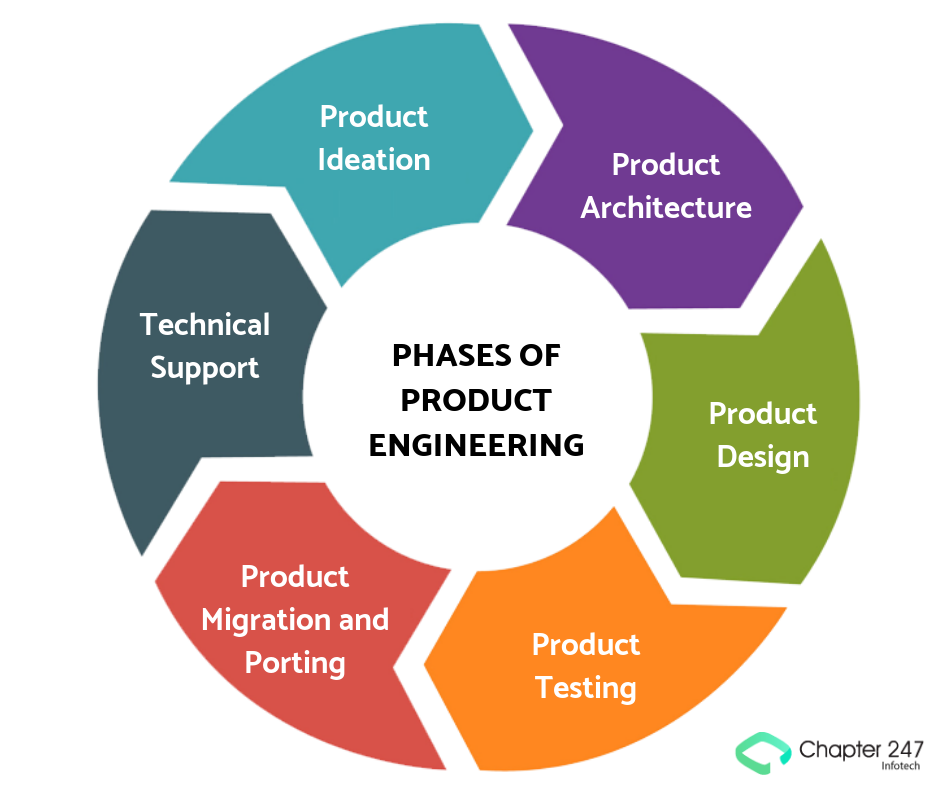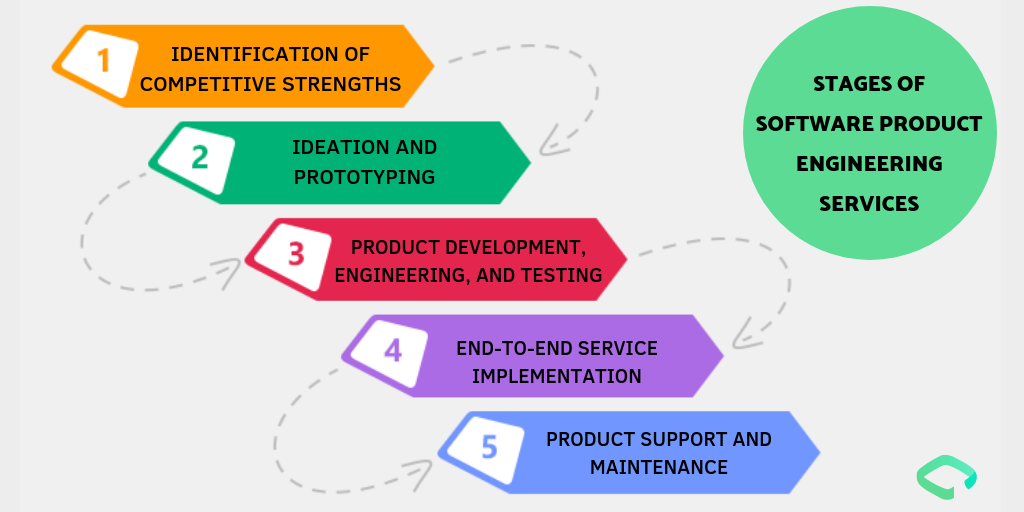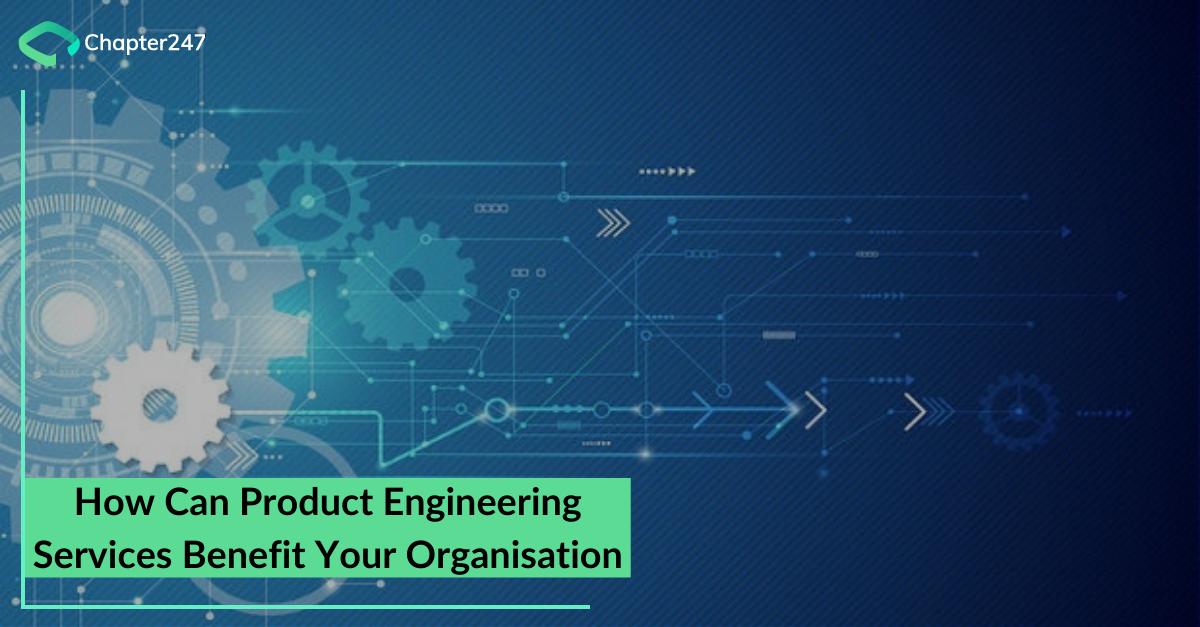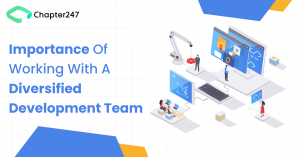Enterprises have increasingly sought to shift from traditional waterfall development models to more flexible agile and lean methods of software engineering in order to cut down turnaround times and ensure blocker-free, transparent progress and increased customer-centricity.
The way ahead in software product engineering consists of doing away with the old and ringing in the new.
What prevents enterprises from adapting to technological advances?
- The risks of poor ROI, costs incurred in training personnel, developing new processes, changing internal systems, downtime, and other factors associated with legacy system overhaul.
- Fear of alienating clients who may have liked the existing processes better.
- The risks involved in selecting the right partner to help in custom application development
Though these challenges remain significant, it is vital for product engineering service providers to ease troubled minds with steadfast support and solid planning. Projecting assured ROI through a well-tested pathway and transparent discussions between the concerned parties also helps in the transformation process.
What does Product Engineering mean for the modern industry?
The actions performed to ensure technical support for enterprise solutions in hardware, software, embedded systems, product conceptualization and IT Infrastructure come under the banner of Product Engineering.
It encompasses the entire range of SDLC activities like innovating new products, designing, developing modules, testing systems, integrating software into the business processes, delivering software by SaaS infrastructure, and deploying software resources in concurrence with web application deployment.
This has led to the creation of client-driven software engineering, and a paradigm shift in software product engineering from traditional, inflexible processes to agile and responsive product engineering.
The Phases of Product engineering can be visualized as below:

- Product Ideation
- Product Architecture
- Product Design
- Product Testing
- Product Migration and Porting
- Technical Support
A “Markets and Markets” survey conducted in 2016, speculates that the product engineering service market can reach a value of around a 1000 Billion USD, at a CAG rate of 8.2% in the period from 2016 – 2021.
Outsourcing product engineering services have come into vogue as this allows enterprises to concentrate on business fundamentals, while keeping the technology stack competitive.
The Benefits which Professional Product Engineering Services and Solutions bring to your Organization
Based on the time-honoured principles of enhanced sustainability, reusability, cost-reduction, scalability, and efficiency; several enterprises have offered customized offerings to handle the product engineering ops of businesses. This helps free up additional resources from these tasks and allow businesses to focus on the essentials.
Some advantages which Product Engineering Services offer to organizations are:
- Allowing companies to obtain additional bandwidth in dealing with their primary business development while the PES provider manages the rest.
- Offers a cheaper and faster learning curve to gain competence in high-end tech.
- Offers convenient interoperability within systems, by utilizing cross-functional and cross-platform solutions.
- Allowing efficient and dynamic troubleshooting by scaling as per client needs.
- Streamlining traditional services and implementing Legacy Application Modernization to overcome stiff competition.
- Anchoring business on the twin pillars of sustainability and scalability for long-term success.
Engagement stages for PES Services
Once you have determined to hitch a ride on the PES Express, here’s some clarification on the general stages of engagement:

1. Identification of Competitive Strengths
It is vital to recognize your organization’s key strengths and how technology can bolster your operations through PES. This stage is often called pedigree identification, and can help to understand trends in consumer behaviour, and modify the tech stack to best address their concerns. It also helps you stay a step ahead of your competitors and beat the market.
2. Ideation and Prototyping
In an agile development environment, project requirements and product specs may rapidly evolve. It is important to estimate the cost of these changes in terms of money, as well as effort, and their overall impact on the goals of your organization.
A capable PES support team can help you take optimized decisions on technology implementation, project execution, POC conceptualization and provide insights on the costs likely to be incurred, the inherent risks, and the overall feasibility of the plan.
3. Product Development, Engineering, and Testing
Once the Product Engineering consultant has signed off on basics like infra requirements, team structure, tech stack to be used, support timings, budgetary concerns and others, the engagement model moves to its next phase of development and validation.
These companies often bring a wealth of HR expertise which helps materialize the human effort to achieve your goals. The consulting firm then proceeds to design the architecture, set up the environment for development and testing, and iteratively deliver the product for constant evaluation and refinement as per the SLA.
Thorough Quality Engineering is vital to tune product performance to meet customer expectations. System testing can happen as a parallel process to user acceptance testing procedures, and this helps to understand the robustness and effectiveness of the product or platform development.
4. End to End Service Implementation
Upgrading your tech stack by leveraging the power of up-and-coming technologies like Cloud Computing and IoT can boost your business. PES consultants help you to understand the potential ROI from these ventures and optimize products and processes by tuning tools, infrastructure, and frameworks to meet customer demands.
Syncing your entire process, using E2E tech stack frameworks help reduce product development time, and ensure a continuous stream of updates and product improvement to help you stay ahead of your customers.
5. Product Support and Maintenance
This is the most vital stage of the engagement to any consumer, as it can make the difference between a successful and a failed product. Proper product support helps solidify the customer’s faith in the consultant as well as ensure a seamless digital transformation journey.
Conclusion
An adept PES partner is hard to find but can help you accelerate your business and scale greater heights. Chapter247 Infotech has a rich history of excellence in Product Engineering, with our offerings centred on being competitive (as per the market), collaborative (with the client), and communicative (to enhance transparency and improve business).
Our team of experts have delivered hundreds of projects for major clients across 15 countries, over the last 6 years and have a comprehensive Product Engineering portfolio to handle your every need.
To know more on how we can transform your business with top-of-the-line Product engineering, call us today.







